#BreakFreeFromPlastic midway assessment of EU countries transposition of single-use plastics Directive
As part of Plastic Free July, members of the Break Free From Plastic movement and of Seas At Risk have taken stock of the progress made by EU Member States on the transposition of the EU Directive on single-use plastics, midway through the transposition period.
Adopted in 2019 by the European Union, the Directive on the reduction of the impact of certain plastic products on the environment, more commonly known as the single-use plastics (SUP) Directive, requires EU Member States to adopt a number of measures to reduce the use of, and pollution from, single-use plastics most commonly found in the environment. EU countries have 2 years, (until July 2021), to transpose the EU Directive into their national law and adopt measures to ensure successful implementation of the Directive.
The Directive notably sets EU wide bans on certain SUP (e.g. plates and cutlery, straws and stirrers, cotton buds, cups and food containers in expanded polystyrene) and also requires EU countries to:
- Reduce the consumption of single-use plastic cups and food containers in their country, by putting in place specific bans or quantitative reduction targets.
- Establish Extended Producer Responsibility (EPR) schemes for some packaging (e.g. wrappers and packets, bags) as well as for wipes, balloons and tobacco products, so as to ensure producers cover the cost of collection, treatment, awareness-raising and clean-up.
- Achieve 90% separate collection of single-use plastic bottles by 2029,
- Establish new markings on cups, tobacco products, wet wipes and menstrual items to indicate the presence of plastics, the appropriate means of disposal and the impacts on the environment when not properly disposed of.
Our analysis of the situation in 19 countries shows that only a few countries have adopted measures to transpose the Directive and fight plastic pollution resulting from single-use plastics. In many countries, the transposition process has not started and/or little information is available on the expected transposition process. Several countries have started to transpose the easiest part, e.g. the EU wide bans set in the Directive, but have yet to adopt key measures that will actually determine the level of ambition and the resulting environmental benefits on the ground. While there is still a long way to go, there are a few countries leading the way – now we need others to follow suit.
Break Free From Plastic calls all EU countries to adopt ambitious measures to move away from single-use plastics, including further bans, quantitative reduction targets, strong EPR schemes with eco-modulation, promotion of sustainable alternatives to SUP and DRS for beverage containers to ensure high collection rates and reduce pollution. EU countries should refrain from granting exemptions to bio-based and biodegradable plastics, that are covered under the same umbrella as conventional plastics in the Directive and are not a solution to plastic pollution. Instead, they should focus on supporting reusable alternatives, which are widely available and blossoming.
Detailed Member State Assessment (alphabetical order in English under each category)
Below is our preliminary assessment of 19 Member States transposition of the SUP Directive. This includes various information sources accessed through the movement, and organised into the following categories:
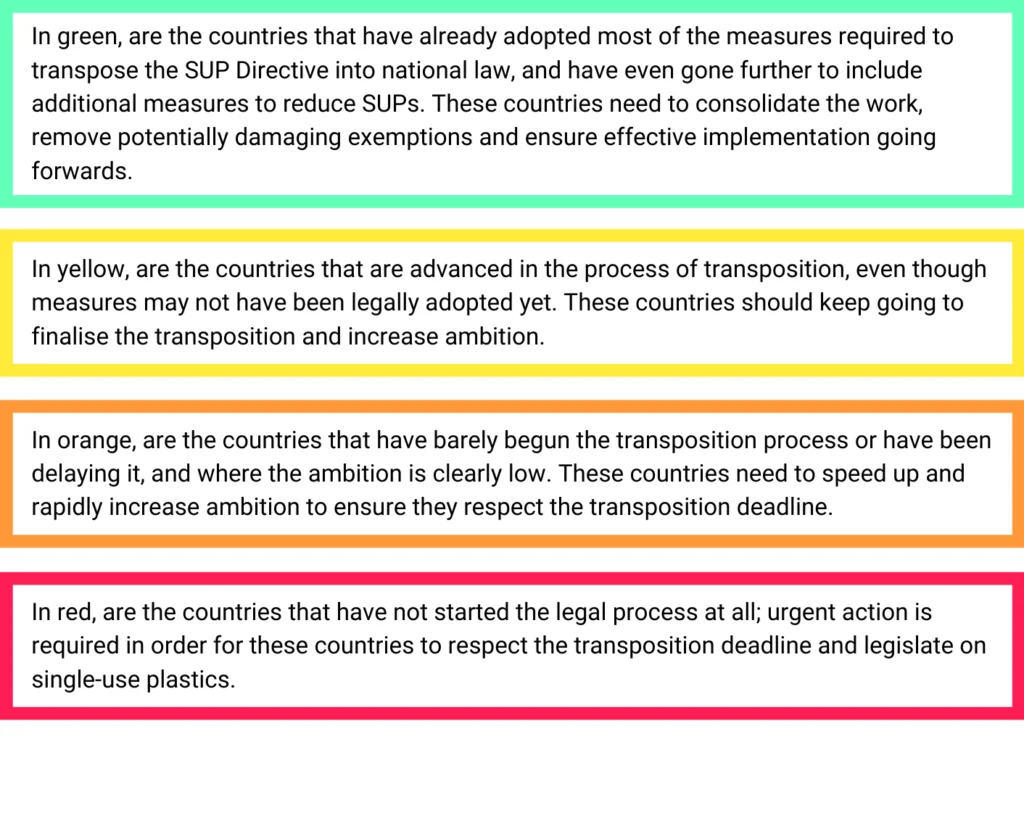
For a more detailed analysis on some of the Member States (France, Germany, Italy, Spain, The Netherlands and Hungary), you can also check out the recent news article from Seas At Risk in addition to the information below.
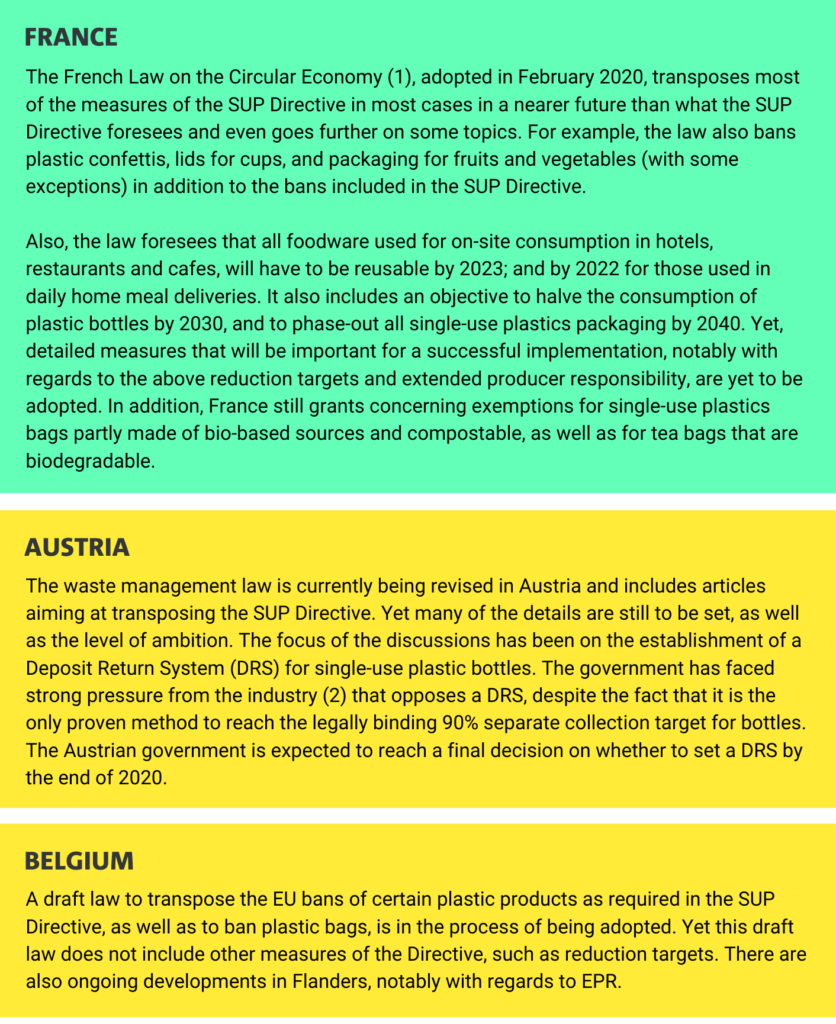
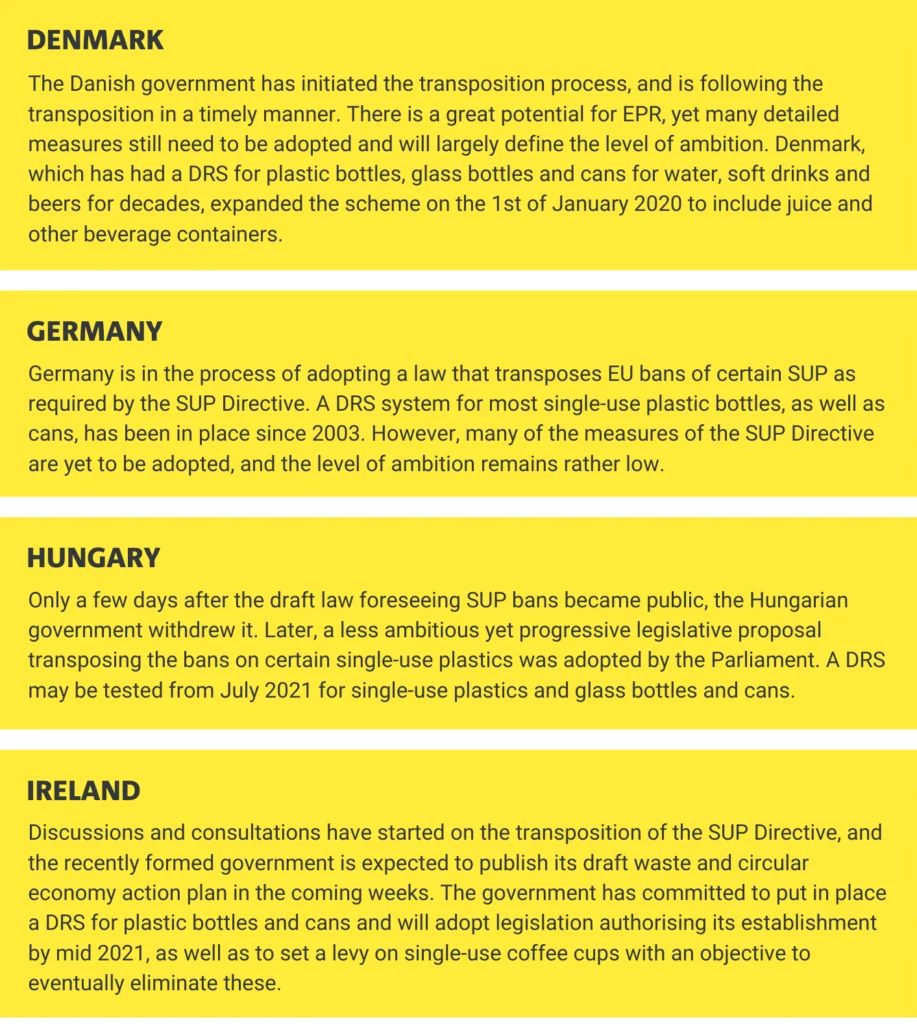
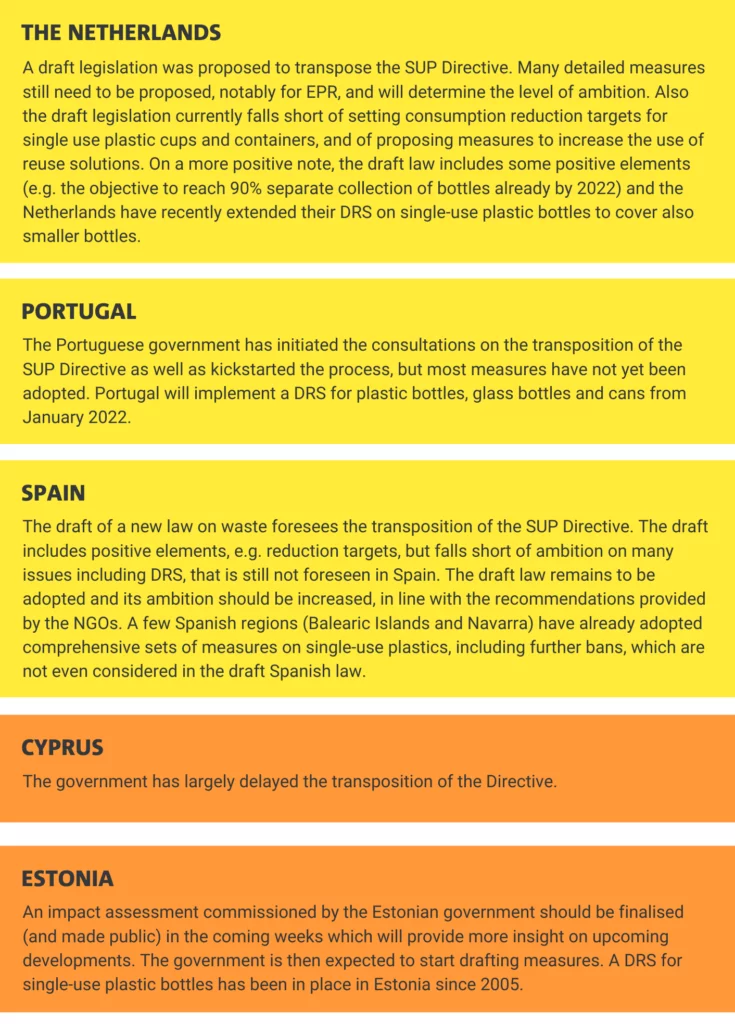
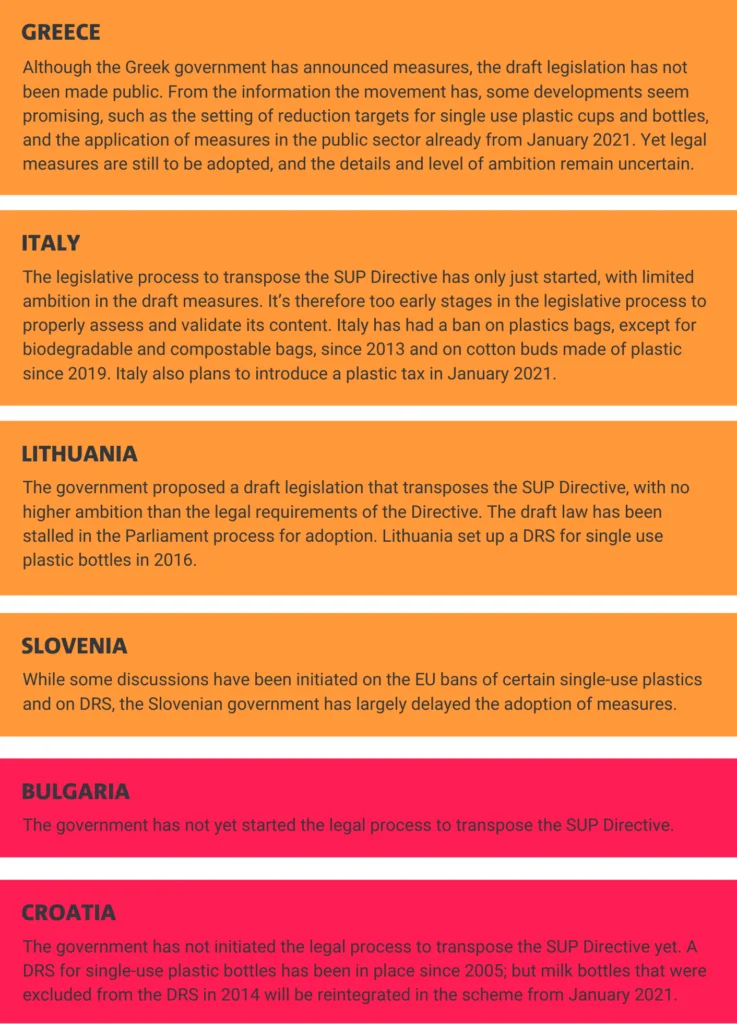

(1) French Law on Circular Economy: https://www.legifrance.gouv.fr/eli/loi/2020/2/10/TREP1902395L/jo/texte
(2) Strong Pressure From Industry: http://changingmarkets.org/wp-content/uploads/2020/05/CM_PLASTIC-POLLUTION-LOBBY_FinalEN.pdf



